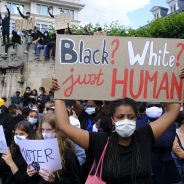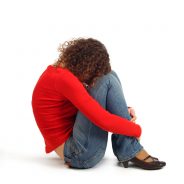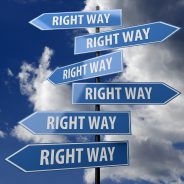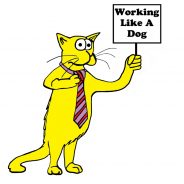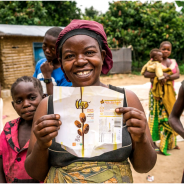Hidden Barriers to Happiness Blog
Have you always wondered about the invisible forces that affect your health, wealth, relationships and happiness?
For over 25 years, first as a neuroscientist, then epidemiologist, and now as a Holistic Brain Health Practitioner, I’ve been passionate about identifying underlying causes of mental and cognitive health challenges. This blog reveals my discoveries from my academic training, my passion for functional medicine, psychology, sociology, energy medicine and what I’ve learned from identifying secrets held by the subconscious.
If you want more health, wealth, better relationships and more happiness, find out what could be getting in the way! When you sign up to get my Top 10 Tips for a Happy & Healthy Brain, you’ll also get 2-4 newsletters per month featuring my blog, “Hidden Barriers to Happiness”.
What are you waiting for? Knowledge is power!
A Tale of Issues in our Tissues
A client came to me because he wanted to address his difficulty in speaking his mind with his loved ones, when they were angry with him. He was also experiencing a lot of dizziness.
I told him that I was being guided to address the dizziness first. I discovered what the Chinese call a “liver blood deficiency”, and I released the imbalances that were driving that.
Then, like with most other physical conditions, I found out that I had to help him address a metaphysical question.
What is a metaphysical question? (more…)
How We Rise Above Abuse
How it starts
I just finished listening to a memoir about a young girl, Tara, who grew up in a large religious family, and wasn’t given a formal education at school or at home. She had a brother who was 5 yrs older, and took her under his wing. He was kind and nurturing at first, but once he gained her trust, the abuse began. It was subtle at first, and it continued and worsened until she complied with his every demand. Their relationship alternated between moments of tenderness, abuse, and sometimes terror. As a reader and outside observer, I could see how dangerous it was for her to be in his presence. I wanted to scream into the book, (more…)
Permission to Grieve
Memorial Day.
Usually it’s for grieving over the loss of our war veterans.
But this year, let’s use it to honor our grief for what we’ve lost due to COVID-19.
While I believe its important to look for the silver linings and stay positive, it’s essential that we take the time we need to grieve our losses.
Knowing what to believe with the Pandemic
The Coronavirus is a prime opportunity and reminder that we need to join forces across the world to fight a common enemy.
So I’m deeply troubled by the amount of disinformation that is being spread on social media.
There are so many videos that are being widely distributed that from doctors, alternative medicine practitioners and even researchers. And many are saying things that are contrary to my understanding of epidemics, immunology, statistics and basic medical science.
They are making extraordinary claims that require extraordinary evidence.
Most of these “experts” are making not just one, but multiple claims, that are contrary to the vast majority of public health professionals at the most respected institutions.
In the time of a pandemic, it’s essential that we clearly are able to discern fact from fiction.
Not knowing who to trust can cause unnecessary loss of life.
So I posted this request on Facebook this week.
Please, before you pass along another video from an angry doctor or Ph.D. that goes against the public health community, please consider these points:
Lessons Learned From the Pandemic: Part 1
Ever since I heard the story of John Snow and his discovery of the source of cholera over 2 decades ago, I’ve been fascinated by how epidemiologists fight epidemics. There are clear patterns and standard protocols that they use to fight infectious disease, and familiar trends with how the public responds.
The standard protocols and our response make sense, if you know the patterns.
At the same time, through my own journey of trauma and recovery, I’ve come to a stage called post traumatic growth. In the stage of post traumatic growth, you become grateful for the past, regardless of how horrific it was, because it’s taught you a lesson. Your pain, and your journey through it, gives you meaning, as it drives you to find a way to protect others who are vulnerable.
Thus, when unspeakable tragedy hits our country, I often wonder if there’s a lesson we are being called to learn.
Because one of my passions is to understand how we can thrive as a society, the answers came to me swiftly. I came up with 9 lessons that I believe will help make us a happier, healthier and a more resilient country. And they are important lessons we need to learn to effectively fight pandemics.
This is my first article in my 9-part series:
Lessons learned from the pandemic
Lesson #1: (more…)
Chronic Stress, Your Immune System & Response to the Coronavirus
While our bodies are adapted to handle short term stressors, they are not equipped for the chronic stress so many Americans endure.
Once you are used to chronic stress, it can be hard to get out of the habit. We often feel that we can’t, that we have too many people to please and obligations to fulfill. But being chronically stressed is not sustainable.
Chronic stress makes us more irritable, makes it harder for us to relax, and increases our risk of almost every disease, including infectious diseases.
And now with a lurking deadly virus, this is a great time to prioritize our immunity to build resilience!
Below are 3 compelling ways chronic stress weakens our ability to fight pathogens, and especially the Coronavirus.
My mission is not to scare you out of your wits, but to scare you into your wits. Revisiting these has helped compel me to make lowering my stress an important priority, and I hope it will do the same for you.
Plus at the end, I’ll reveal my favorite stress relieving strategy which you don’t want to miss.
Top 3 ways chronic stress affects our immunity and susceptibility to the Coronavirus:
Three Favorite Coronavirus Prevention Strategies
Are you concerned about getting the Coronavirus?
As of March 30th, 2020, I think it’s going to be awhile before it’s safe to socialize in person. And even when we do get back into society, we’re going have to be very careful.
The good news is that I have found some amazing ways to keep ourselves relatively safe!
Let’s Talk About Lowering Your Risk
I can’t make any promises, but it’s about lowering your risk.
The Coronaviruses replicates in your mucous membranes. That is in your eyes, your nose, and your mouth. They stay and replicate there for about five days on average, but it ranges between two and fourteen days.
The virus can then start to descend into the lungs and that’s where you start to feel the symptoms. That means if we do get exposed, we have some time to do something about it.
The problem is because this virus lingers in the air and lasts for days on surfaces, we never know if we’ve been exposed.
So we have to act like we’ve been exposed.
This is why the CDC recommends that we be very vigilant about washing our hands and NOT touching our face.
But I believe there is more that we can do.
To Fear or Not To Fear the Coronavirus
As a Holisitic Brain Health Practitioner, I’m a huge fan of Dr. Bruce Lipton, but he and many others are warning people about the dangers of fear, and I’m sensing a dismissing of the magnitide of this outbreak.
But as an epidemiologist, I think that’s dangerous.
We have to honor our emotions. They are there for a good reason. We want fear when we encounter a tiger. The Cornoavirus is today’s tiger.
That being said we need a balance.
Lets talk about healthy vs. vs. unhealthy fear.
Why Your Life Is Meaningful.. Whether You Intend It To Be Or Not
If we are prone to depression, sometimes we can feel like we are all alone, and nothing we do matters.
If you are prone to this type of thinking, then I invite you to consider this:
Every day, whether we intend to or not, we affect the lives of others
How? Keep reading or watch the video, and I’ll share 4 ways your life is meaningful:
Its Time to Make Compassion Cool!
As a 6th grader, I read Farewell to Manzanar, the book about a young girl’s experience being interned in the Japanese internment camps in 1941. I also read the Diary of Anne Frank, and then Roots (because mom wouldn’t let me watch it on TV). Then in college, I took a class on the holocaust.
As an empath, I felt the pain of those who suffered during such awful times in history. But I wasn’t interested in being depressed. I was looking for answers. Why were so many people willing to tolerate so much cruelty? Why did so many people just look the other way?



